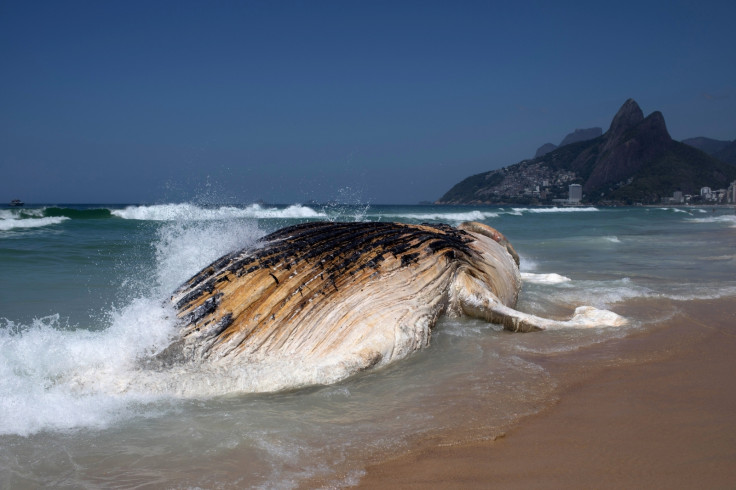Beachgoers take selfies with 30-tonne dead whale that washed up on Rio's Ipanema beach
The whale is said to have been dead for a few days and the cause of its death is not yet known.
The smelly carcass of a mammoth whale that washed up on the shores of Ipanema beach in Rio de Janeiro on Wednesday (15 November) became the centre of attention for several hours. Many beachgoers celebrating the country's Republic Proclamation holiday were shocked to see the decomposing humpback whale, while the more adventurous among them took selfies with it.
The whale which was giving off a strong smell is said to have been dead for a few days and the cause of its death is not yet known, Brazilian biologist Rafael Carvalho of the University of Rio de Janeiro (UERJ) said.
"You cannot say much for now. It is a humpback species, a male, that measures around 13 to 15 metres, and is in a stage of advanced decomposition," Carvalho told O Globo. "The colour is very impaired. He is supposed to be blacker with white parts on the stomach."
Carvalho, who is part of a team that removes beached whales, said the carcass will be taken in a truck and then buried for sanitary reasons.
According to videos circulating on social media, the whale, estimated to be between 42 feet (13 metres) and 49 feet (15 metres) long, was said to have been discovered between the Arpoador peninsula and Ipanema beach, RT website reported.
Authorities were called to the beach to collect the carcass as beachgoers were touching its jaw bones, which had become loose and were lying on the sand. A security perimeter was set up around the whale to keep people away from it.
"I've never seen one so close, I would have liked to have had the chance to save it," Mauro Azevedo, a 62-year-old Rio resident said, according to The Journal.
Beachings are said to be quite common along Brazil's coast as the whales migrate between their feeding and breeding grounds.
Earlier in May, decaying remains of an unidentified creature was found on the shores of Indonesia. The 15-metre-long carcass which was first spotted by a local resident on 9 May had discoloured skin and continued to bleed a day after it was found.
The creature was said to have been dead for at least three days before it was spotted. Some local fishermen believed that the creature was a giant squid, while some thought it was a giant octopus. But Indonesia's Marine and Coastal Resources Management coordinator later said that it could be a whale.






















